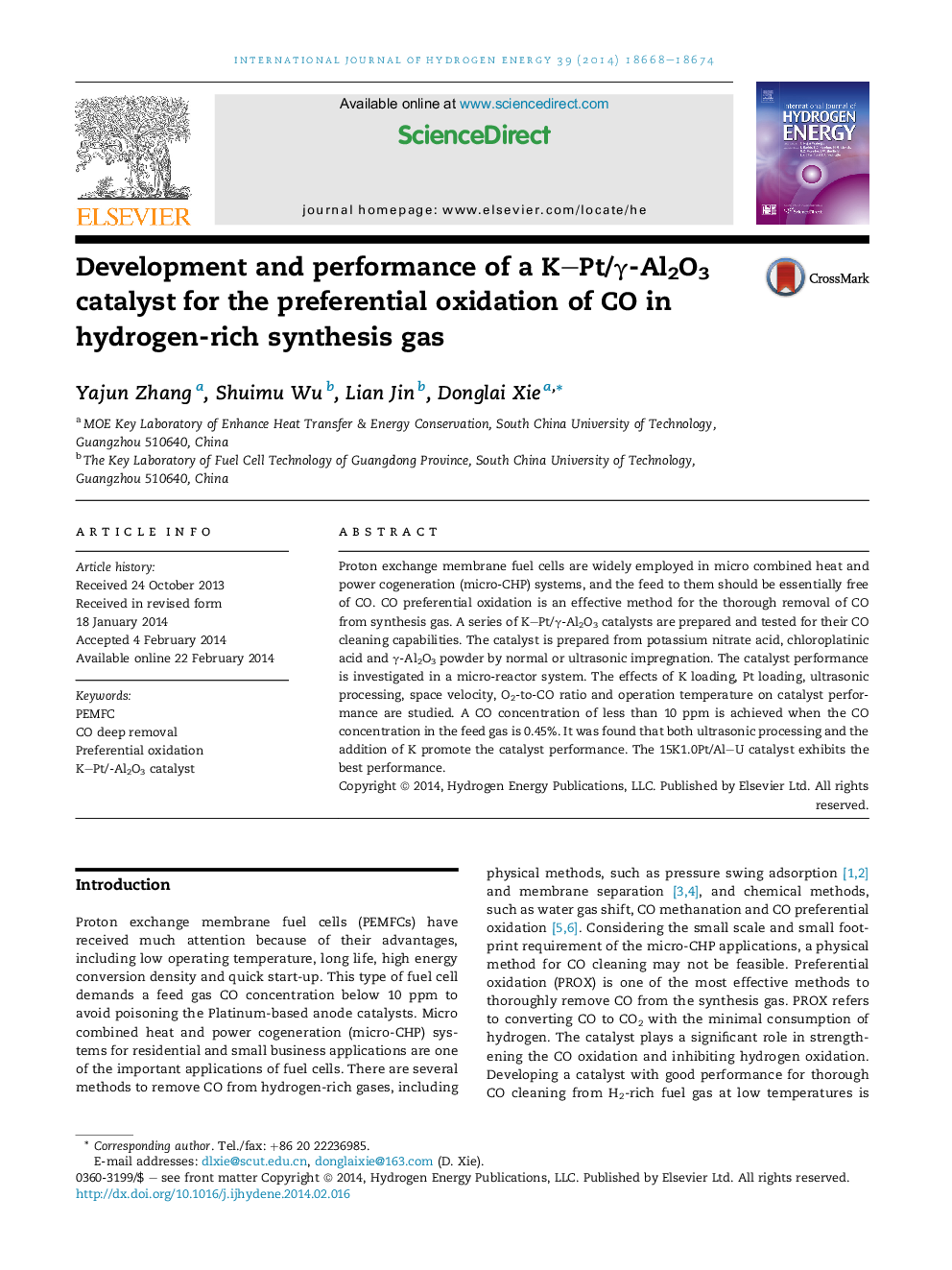| Article ID | Journal | Published Year | Pages | File Type |
|---|---|---|---|---|
| 1280881 | International Journal of Hydrogen Energy | 2014 | 7 Pages |
•K–Pt/γ-Al2O3 catalysts are prepared and tested for their CO cleaning capabilities.•Calcination temperature has little impact on catalyst performance within 500–600 °C.•High Pt loading does not always improve the performance of the catalyst.•Ultrasonic processing improves catalyst activity and CO selectivity.•Addition of K to Pt/γ-Al2O3 catalyst significantly improves catalyst activity.
Proton exchange membrane fuel cells are widely employed in micro combined heat and power cogeneration (micro-CHP) systems, and the feed to them should be essentially free of CO. CO preferential oxidation is an effective method for the thorough removal of CO from synthesis gas. A series of K–Pt/γ-Al2O3 catalysts are prepared and tested for their CO cleaning capabilities. The catalyst is prepared from potassium nitrate acid, chloroplatinic acid and γ-Al2O3 powder by normal or ultrasonic impregnation. The catalyst performance is investigated in a micro-reactor system. The effects of K loading, Pt loading, ultrasonic processing, space velocity, O2-to-CO ratio and operation temperature on catalyst performance are studied. A CO concentration of less than 10 ppm is achieved when the CO concentration in the feed gas is 0.45%. It was found that both ultrasonic processing and the addition of K promote the catalyst performance. The 15K1.0Pt/Al–U catalyst exhibits the best performance.
